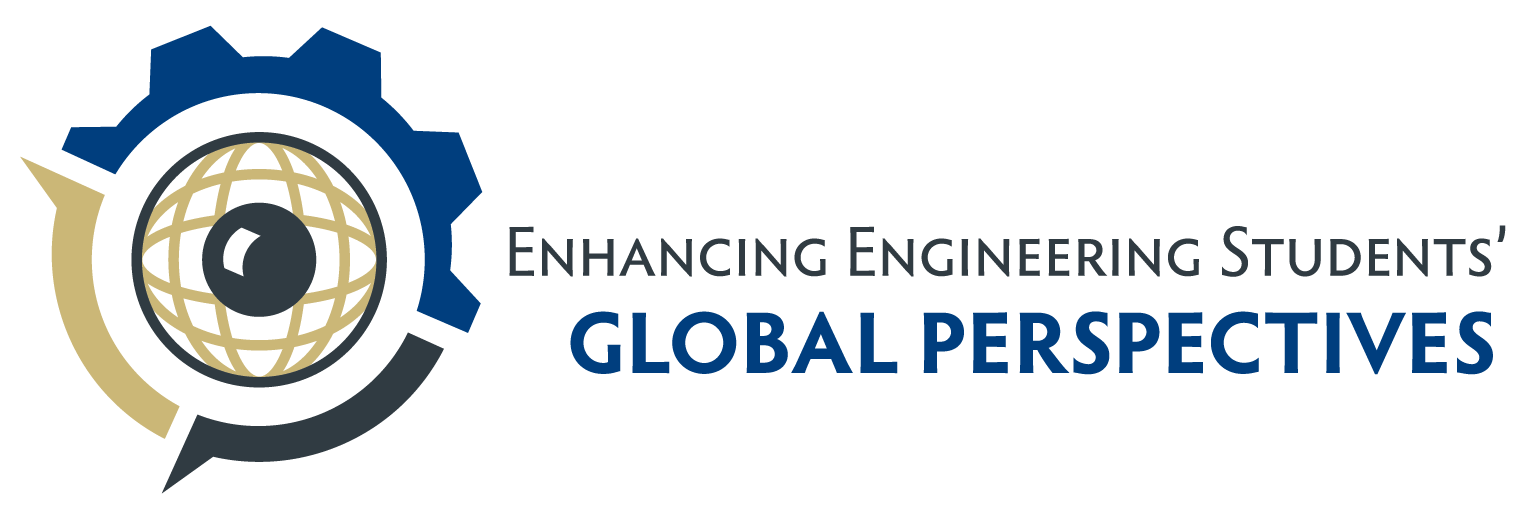Study 2
Mixed Methods Experiments Across Four Collaborating Schools
This study uses a mixed-methods quasi-experimental design to measure the learning outcomes identified in Study One. Learning outcomes are obtained through a mapping of the constructs with the two instruments’ (EGPI and GPI) scales (see The Global Perspective Intentory). An accompanying background survey was developed to identify those underlying student characteristics and the student’s respective international/intercultural experiences contributed most to the individual’s global preparedness as identified in Study One. The resultant background survey instrument consisted of four components: profile characteristics (e.g., gender, age, class standing), educational background (e.g., university, major, QPA), travel abroad/ international experiences (e.g., level of interest in international issues, foreign language proficiency), and characteristics of the international experiences (e.g., programmatic elements of experiences such as duration, amount of reflection, and comfort zone). The background survey items also provided independent predictor variables to help explain the results of the outcome instruments (EGPI and GPI). Samples (from each of the four partner institutions) of senior engineering students, each of whom had engaged in an at least one international experience were invited to complete the set of instruments (EGPI, GPI, and background survey). In addition to sampling seniors with international experiences, each campus also recruited a comparison set of senior engineering students who had not had an academic-based international experience, and a third sample of incoming freshmen, the former serving as a comparison group and the latter providing an institutional baseline.
After initially analyzing the results of the EGPI and the GPI, a small subset of students were invited to participate in a follow-up interview of 20-30 minutes. Specifically, we have been interviewing students at each institution who “scored” high on the outcome instruments (EGPI and GPI). The primary purpose of these follow-up interviews is to further tease out the underlying reasons for how these students’ achieved relatively high levels of global preparedness. The following overarching questions framed the interviews: “Why did you choose to study abroad and/or pursue an international experience?”, “Did these experience change the way you think about engineering?”, and “Did these experiences affect your thinking about the cultural relevance of engineering?” A set of probes based on the constructs of the two instruments and background survey helped to facilitate the overarching questions.
An inductive coding protocol was utilized to further refine definitions while allowing for additional analytical themes to emerge. The preliminary codes consisted of the type of international experience and structure, motivation, openness to experience, degree of reflection. The transcripts were then coded according to a final schema by multiple research team members to ensure inter-rater reliability, and arbitrated where necessary.

Theoretical framework for qualitative data analysis. Adapting Prochaska and DiClemente's Trans Theoretical Model of Change. Including predisposition, Antecedents to Motivation, Motivation, and Reflection.
Study 2 Related Publications
Streiner, S., E. McCave, M Besterfield-Sacre, G. Ragusa, L. Shuman, C. Matherly, L. Benson, S. Levonisova, R. Savage. (2015). “An Inductive Qualitative Analysis of Student Interviews on Engineering Global Preparedness”, 2015 ASEE Annual Conference and Exposition, Seattle, WA, June 2015
Levonisova, S., R. Savage , S. Streiner, E. McCave, G. Ragusa, M. Besterfield-Sacre, L. Shuman, C. Matherly, and L. Benson. (2015). “ Identifying Factors That Enhance Undergraduate Engineering Students’ Global Preparedness”, 2015 ASEE Annual Conference and Exposition, Seattle, WA, June 2015
Shuman, L., M. Besterfield-Sacre, G. Ragusa, C. Matherly, and L. Benson (2016). “Assessing the Spectrum of International Undergraduate Engineering Educational Experiences”, 2016 ASEE Annual Conference and Exposition, New Orleans, LA, June 2016
